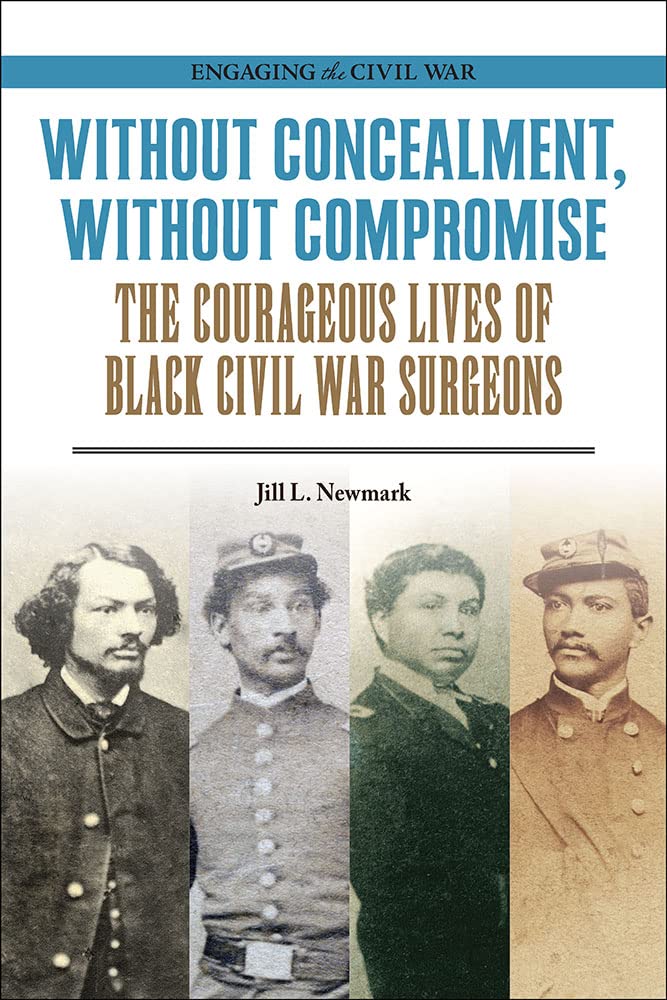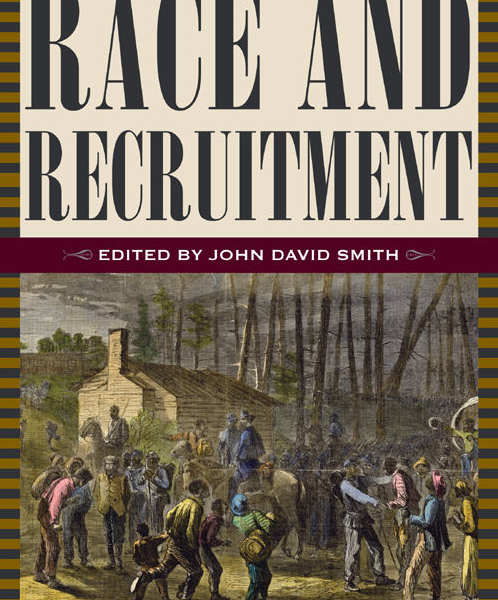One might suppose there is nothing new to learn about the Civil War era. Jill L. Newmark’s splendid new monograph, Without Concealment, Without Compromise: The Courageous Lives of Black Civil War Surgeons, convincingly refutes that assertion. By exploring many primary and secondary sources (including various Civil War pension records), Newmark’s work cements itself as a welcome contribution to various historical literatures which seek to understand the significance of Black military families in and beyond the United States.
Newmark’s succinct and accessible prose effectively accomplishes her goal of historical recovery. She offers a much-needed examination of the inspiring lives of multiple Black men who fought to destroy not only the Confederacy, but also ever-evolving forms of racial and gender discrimination within the U.S. army. Most analyses on the Black military experience during the Civil War era tend to focus on enlisted men in the U.S. Army. Newmark’s work is a welcome corrective.
Despite their diverse backgrounds and origins, Black USCT surgeons experienced all forms of racism. The U.S. War Department, for example, decided to hire medically trained Black men such as Charles Burleigh Purvis and Richard Henry Greene as “contracted surgeons,” rather than as commissioned officers. This move “saved” white U.S. servicemembers from having to take orders from a Black man.
Further, as Newmark details, contracting with Black military surgeons gave white men the latitude to have Black officers removed from their positions (15). Recalling these details affirms that amidst civil war, a race war was raging within the U.S. military. White servicemembers’ obsessions with “protecting” their white supremacist views superseded the U.S. government’s military objectives.
Still, Newmark emphasizes the multilayered symbolism and empowerment of publicly donning a U.S. military officer uniform. Men like Alexander T. Augusta, the first Black U.S. Army physician, helped to reframe American society in fundamental ways. “Their presence,” Newmark writes, “would serve as a stepping stone toward emancipation and citizenship” (2).
The second significant contribution of the monograph is its analysis of Black surgeons’ lives across multiple decades, including the lived experiences of their kin. By including the life stories of the relatives of these fourteen Black men, the reader can (in a complete sense) understand how their families and communities helped to shape and support these groundbreaking historical figures. For instance, one could easily center on First Lieutenant Anderson R. Abbott’s 1864 visit to the White House as an empowering historical moment. However, Newmark’s analysis uncovers the histories of his parents—Ellen and Wilson Abbott—to reveal that his parents were staunch advocates of a more equitable educational experience for Black children in both the U.S. and Canada. Incorporating such experiences and other aspects of Black servicemembers’ civilian lives highlights that they were fighting for racial equality long before—and long after—they donned a military uniform.
Despite the many strengths of this book, there are some notable historiographical omissions (particularly as it pertains to recent literature on Civil War pensions and African Americans). Regardless, Newmark’s book is a must-read and must-cite for those interested in (or studying) Black military service in the Civil War era.
Holly A. Pinhiero Jr. is the author of The Families’ Civil War: Black Soldiers and the Fight for Racial Justice.





